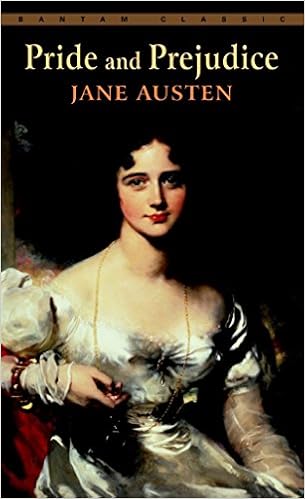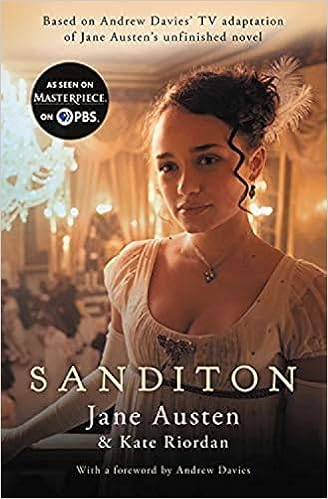
Description
Steven Marcus is Professor of English and Comparative Literature and George Delacorte Professor in the Humanities at Columbia University, and a specialist in nineteenth-century literature and culture. A fellow of both the American Academy of Arts and Sciences and the Academy of Literary Studies, he has received Fulbright, American Council of Learned Societies, Guggenheim, Center for Advanced Study in the Behavioral Sciences, Rockefeller, and Mellon grants. He is the author of more than 200 publications. Excerpt. © Reprinted by permission. All rights reserved. From Steven Marcus's Introduction to Emma The first sentence of Emma is only less well known than the legendary opening of Pride and Prejudice . "Emma Woodhouse, handsome, clever, and rich, with a comfortable home and happy disposition, seemed to unite some of the best blessings of existence; and had lived nearly twenty-one years in the world with very little to distress or vex her." The immediate effect of this statement is to stop us, we readers, in our tracks. It is also a heads-up or alert, signaling to us as the narrator's adherents and collaborators to step up the volume and fine-tune the attentiveness that we direct toward the page. It begins with a broadside of affirmations and modulates into a conclusion that intimates serious problems may exist in the offing. Emma is very good looking in a rather striking and forceful way (not pretty or, here, beautiful); she is intelligent and quick-witted; and she is more than affluent when it comes to material means. She takes pleasure as well in the amenities of an established place in which to live, the establishment being part of a settled order in which she also feels at home. And best of all, perhaps, she is blessed with a "happy" temperament or general tone of well-being. With all these fortunate and combined bestowals, is there anything else to ask for? Well, yes—since they amount, the narrator remarks without pausing, to no more than "seemed." The dubiety carried in that ironic reservation turns the sentence around and prepares us for vexation and distress. Emma has also reached a conventional juncture or locus of passage in the life cycle of European women and men. And this reference to numbers leads to a series of statements that informs us about how, in turn, those twenty-one years are to be regarded. Emma's mother has been dead for about sixteen years, since that is the interval during which Miss Taylor has been employed as her beloved governess—Emma's memory of her goes back to the age of five. Emma's older married sister, Isabella, is at least six years her senior, since we soon learn that she has been married for seven years and already has five children, the youngest of whom is less than a year old. It is reasonable to assume that Emma "had been mistress" of her father's house since she was about thirteen (a number that will come up later). Her father's age we will get to in a bit. Her father and governess have raised Emma with great affection and equal indulgence. Restraint and authority have been close to absent from her experience, and she has, within this atmosphere of tenderness, permissiveness, and admiration, grown up "doing just what she liked; highly esteeming Miss Taylor's judgment, but directed chiefly by her own." The consequent disadvantages of Emma's situation were "the power of having rather too much her own way, and a disposition to think a little too much of herself." These "real evils" are at once modulated by "rather" and "a little too much." There may be forebodings, but they are neither very dark nor desperate. The novel begins, however, with Miss Taylor's departure from the Woodhouse home of Hartfield. She has become Mrs. Weston, having just married a prosperous widower neighbor and taken up residence at Randalls, his recently purchased "little estate," only a half-mile from the Woodhouses. The wedding guests have gone, and Emma and her father are left to themselves "to dine together, with no prospect of a third to cheer a long evening." Miss Taylor's wedding precipitates in Emma a "gentle sorrow." She understandably experiences Mrs. Weston's happiness as a "loss" as well, and sits in "mournful thought" pondering "what she had lost." The good fortune of her dear friend is both a source of "satisfaction" to her and yet, more questionably, "a black morning's work." The lightly stressed irony is that Emma is responding to her idealized surrogate mother's marriage as if it were an echo or shadow reenactment of her natural mother's death sixteen years before. Even more, in recent years the two of them have stood on "equal footing" and in "perfect unreserve"; to Emma, Miss Taylor has been that most rare "friend and companion," someone "peculiarly interested in herself, in every pleasure, every scheme of hers;—one to whom she could speak every thought as it arose, and . . . could never find fault." With this approving mirror of another consciousness, another affirming yet senior female self, moving away into separateness and independence, Emma recognizes in herself the sense that things can never be the same for her again. "How was she to bear the change?" Indeed. The "melancholy change" is compounded by Emma's awareness that "she was now in great danger of suffering from intellectual solitude. She dearly loved her father, but he was no companion for her. He could not meet her in conversation, rational or playful." Mr. Woodhouse is somewhere between sixty-five and seventy years old. Yet the evil of the actual disparity in their ages . . . was much increased by his constitution and habits; for having been a valetudinarian all his life, without activity of mind or body, he was a much older man in ways than in years; and though every where beloved for the friendliness of his heart and his amiable temper, his talents could not have recommended him at any time.Although Emma dearly loves her father, they don't have interests or resources in common. Emma loves talk, the back and forth of conversation, the playfulness of wit and the bite of argument; her father is somewhere else. He is obsessed to the point of looniness with his health; he lives in terror of the weather; drafts, heat, cold and colds, damp, snow, the dews of a summer evening all imperil him and everyone he can warn. And he is equally endangered by food: His fearful admonitions on thin gruel, pork, boiled eggs, and baked apples are the stuff of unforgettable comic turns. He has behaved as "quite an invalid" all his life and has in fact become one. He claims that he goes "no where" and is torpid and inert. He exists at such a depressed level of vitality that he seems to be far older than his years. Friendly, affectionate, and amiable as he may be, he is neither brainy nor energetic. Mr. Woodhouse is effectively old enough to be Emma's grandfather, and in the far-distant resolution of this novel he partially fills that functional role.
Features & Highlights
- Emma
- , by
- Jane Austen
- , is part of the
- Barnes & Noble Classics
- series, which offers quality editions at affordable prices to the student and the general reader, including new scholarship, thoughtful design, and pages of carefully crafted extras. Here are some of the remarkable features of
- Barnes & Noble Classics
- : New introductions commissioned from today's top writers and scholars Biographies of the authors Chronologies of contemporary historical, biographical, and cultural events Footnotes and endnotes Selective discussions of imitations, parodies, poems, books, plays, paintings, operas, statuary, and films inspired by the work Comments by other famous authors Study questions to challenge the reader's viewpoints and expectations Bibliographies for further reading Indices & Glossaries, when appropriateAll editions are beautifully designed and are printed to superior specifications; some include illustrations of historical interest.
- Barnes & Noble Classics
- pulls together a constellation of influences—biographical, historical, and literary—to enrich each reader's understanding of these enduring works. Emma Woodhouse is a wealthy, exquisite, and thoroughly self-deluded young woman who has "lived in the world with very little to distress or vex her."
- Jane Austen
- exercises her taste for cutting social observation and her talent for investing seemingly trivial events with profound moral significance as Emma traverses a gentle satire of provincial balls and drawing rooms, along the way encountering the sweet Harriet Smith, the chatty and tedious Miss Bates, and her absurd father Mr. Woodhouse–a memorable gallery of Austen's finest personages. Thinking herself impervious to romance of any kind, Emma tries to arrange a wealthy marriage for poor Harriet, but refuses to recognize her own feelings for the gallant Mr. Knightley. What ensues is a delightful series of scheming escapades in which every social machination and bit of "tittle-tattle" is steeped in Austen's delicious irony. Ultimately, Emma discovers that "Perfect happiness, even in memory, is not common."Virginia Woolf called Jane Austen "the most perfect artist among women," and Emma Woodhouse is arguably her most perfect creation. Though Austen found her heroine to be a person whom "no one but myself will much like,"
- Emma
- is her most cleverly woven, riotously comedic, and pleasing novel of manners.
- Steven Marcus
- is Professor of English and Comparative Literature and George Delacorte Professor in the Humanities at Columbia University, and a specialist in nineteenth-century literature and culture. A fellow of both the American Academy of Arts and Sciences and the Academy of Literary Studies, he has received Fulbright, American Council of Learned Societies, Guggenheim, Center for Advanced Study in the Behavioral Sciences, Rockefeller, and Mellon grants. He is the author of more than 200 publications.





